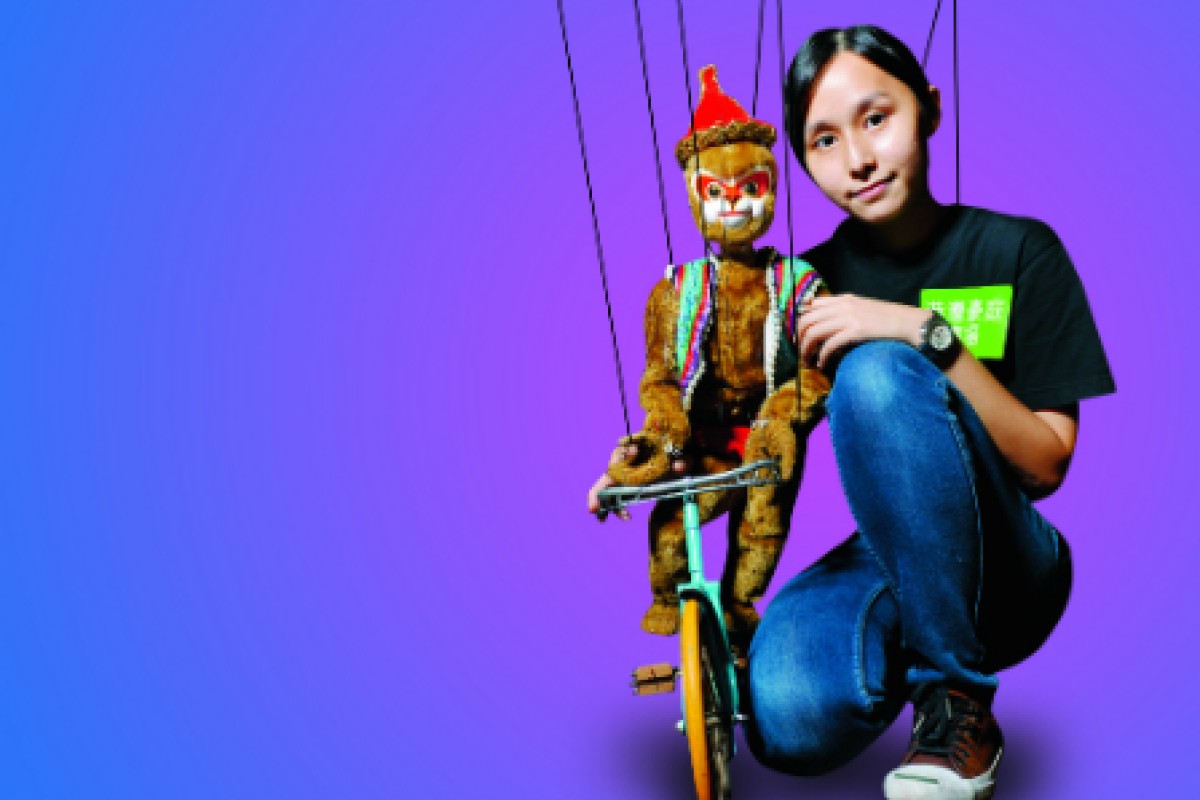
With Chinese opera and puppet shows generally seen as dying industries, and most people only engaging in them as a hobby rather than a career, Wong's father used to worry that his craft would be lost. But not anymore. Wong went to the mainland to pursue puppet art around 11 years ago, and has worked in the puppet industry ever since.
After finishing Form Two, Wong left Hong Kong for Hunan to study at an art school with a special programme.
"My dad told me that it was a once-in-a-lifetime chance ... because the puppet programme is organised by a famous puppet show group and only recruits students every 10 years," she says.
In Hunan, Wong learned how to operate four types of puppets.
"There were miniature puppets that attach to my fingers, string puppets, shadow puppets, and stick puppets," says Wong. "The biggest of all is the stick puppet, which is the same size as a four-year-old. A stick is used to hold it up [hence the name]. A puppet show usually features more than one type of puppet, so it is important to master all four."
The stick puppet performance is the most physically demanding.
"The puppet weighs up to 3 kilograms," says Wong, adding it is hard to support all that weight on a stick. "But after playing with puppets for three or four hours a day, I kind of got used to it."
After five years on the mainland, Wong returned to Hong Kong to join her father's Hong Kong Puppet and Shadow Art Centre in 2007.
"When my father said I should go to Hunan to study puppet art, I had no idea about what career I wanted, so I took his advice," she says. "It turned out to be a good choice. There's lots of demand from schools and corporate firms, and from overseas, to see and learn about puppet shows. Seeing my audience enjoying the show is very satisfying."
Wong spends most of her time running puppet workshops and performing for schools.
"My father and I have been invited to perform at kindergartens,primary and secondary schools, and even universities," she says. "Some students who are really passionate about puppets help us with performances. I think it's important to nurture students' interests, so the art form can continue."
Looking ahead, Wong doesn't think puppet shows are in danger of disappearing. She says the mainland has built up a strong system to encourage their development.
"My father travelled around China, learning from different masters," she says. "I was lucky to learn the craft at a school. There are many schools on the mainland that ensure the art flourishes.
"The situation in Hong Kong is different, though. There aren't many young people who want a career in puppetry. But I try not to worry about that. I am more concerned with bringing fun and laughter to my audiences."
You might also like:
- A Vietnamese troupe keeps the 1,000-year-old art of water puppetry alive
